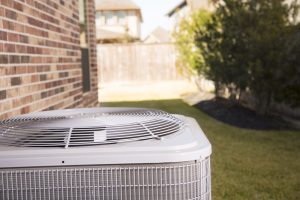 We may have a bit of a reputation for chilly and often quite snowy winters, but that doesn’t mean that our summers don’t pack quite the punch. With soaring temperatures and excess moisture in the air, it’s easy to feel uncomfortable in your home—at least, without the right indoor air quality products and air conditioning system in place, that is.
We may have a bit of a reputation for chilly and often quite snowy winters, but that doesn’t mean that our summers don’t pack quite the punch. With soaring temperatures and excess moisture in the air, it’s easy to feel uncomfortable in your home—at least, without the right indoor air quality products and air conditioning system in place, that is.
That said, one indoor air quality problem in particular—high humidity—not only impacts comfort but can damage your air conditioner, too, leaving your home muggy and uncomfortable. Fortunately, there’s a great way to prevent all this. The installation of a whole-house dehumidifier!
The Problem with Excess Humidity
When we talk about high, or excessive, humidity, we’re referring to anything with a relative humidity level above 50%. This is the point of which discomfort becomes more apparent. Assessing humidity comes down to science—as humans we keep cool by sweating. More specifically, our bodies keep cool by allowing sweat to evaporate off of our skin in a breeze.
When the humidity in your home or even outside gets too high, it means there is too much ambient moisture in the air for us to cool off. So, our bodies stay heated and the sweat stays on our skin. This leads to that gross sweaty feeling when the air is muggy. High humidity also encourages the growth of mold and bacteria, which we can say with pretty good certainty that’s not something you want to see in your home.
How Humidity Impacts Your Air Conditioner
How does humidity get lowered? In simple terms, but lowering the temperature. This causes ambient moisture to coalesce into droplets, like the dew drops you see on plants in the early hours of the morning. This means that air conditioner serves by dehumidifiers by default, but it doesn’t mean that they should.
Air conditioning systems are not designed to control humidity levels in any real beneficial way. They remove moisture in the air, but not very much—and you don’t even have control over how much. High humidity forces your cooling system to work harder at its primary job of keeping your home cool.
And since the air feels hotter when humidity levels are high, the air conditioner needs to do more—this raises both your monthly bills and the possibility of a breakdown in the future. Over the years, the high humidity we experience each summer will shorten the lifespan of your system, as it will make it work too hard to do its job.
Lastly, since your air conditioner isn’t set up to handle that much excess moisture, it can be overwhelmed by the humidity. Yes, air conditioners do have drain lines and drain pans to collect condensate, but excess humidity could end up overflowing the pan and causing subsequent problems with your HVAC system or with your home itself.
An indoor air quality system designed to eliminate excess humidity—the whole-house dehumidifier—will not only help you feel more comfortable in your home but will help ease the strain that your air conditioner goes under in order to do its job.
For quality HVAC services in Cape May County, NJ, contact Ambient Comfort today!
